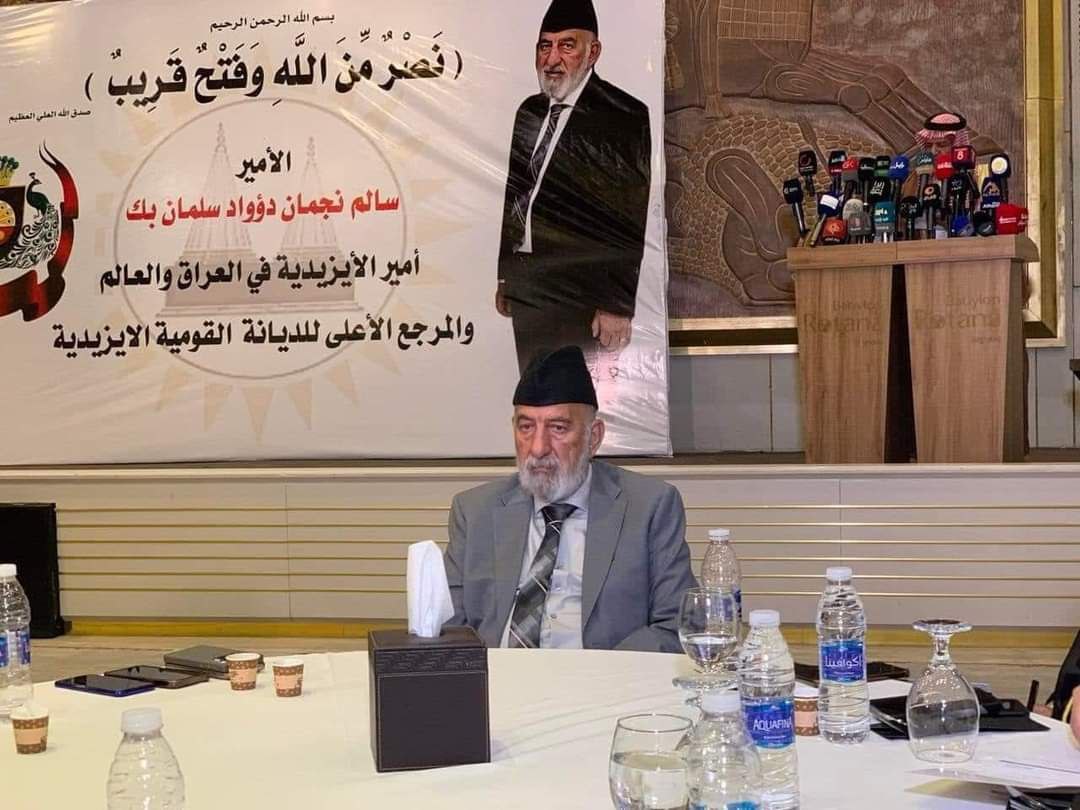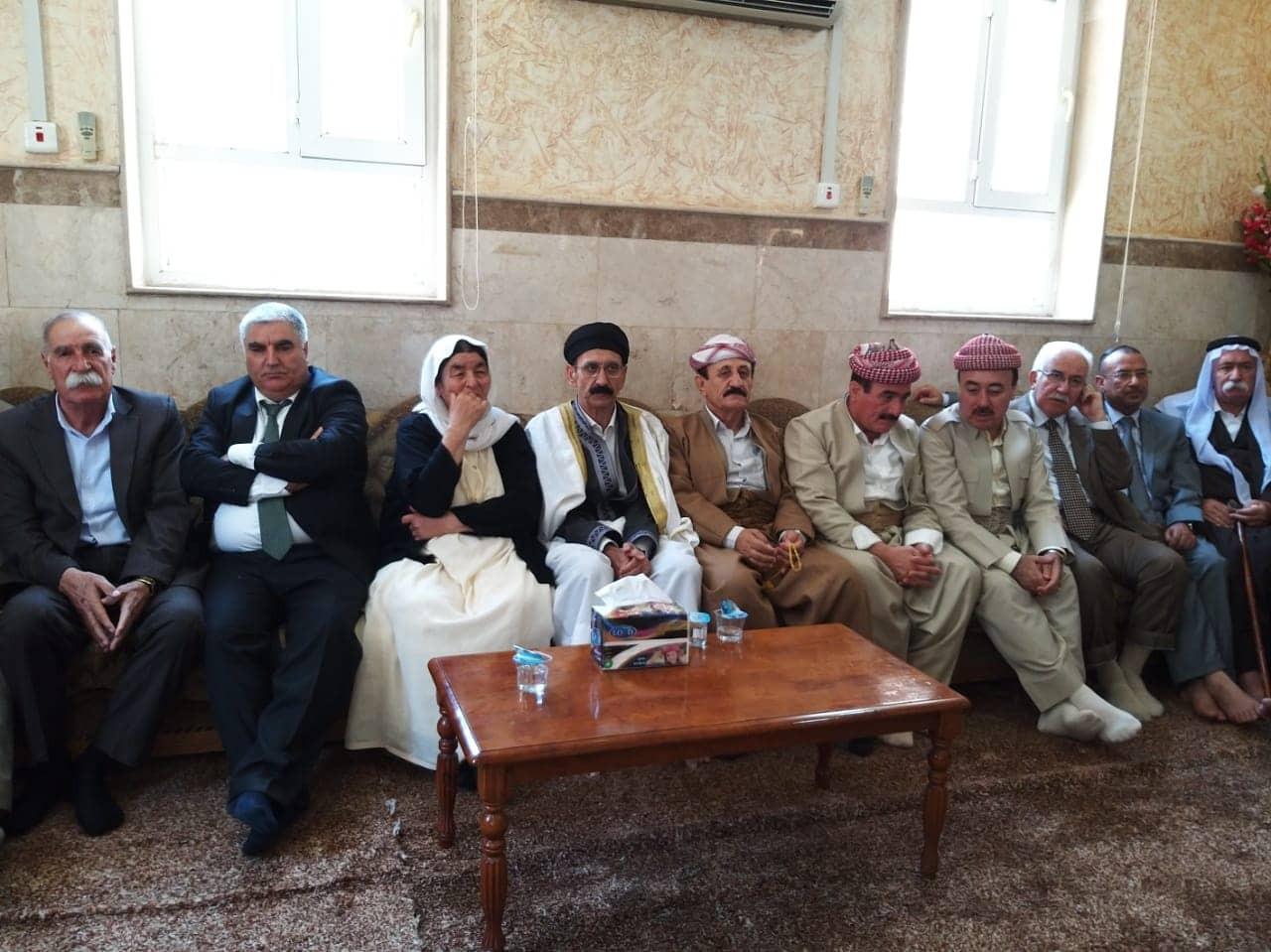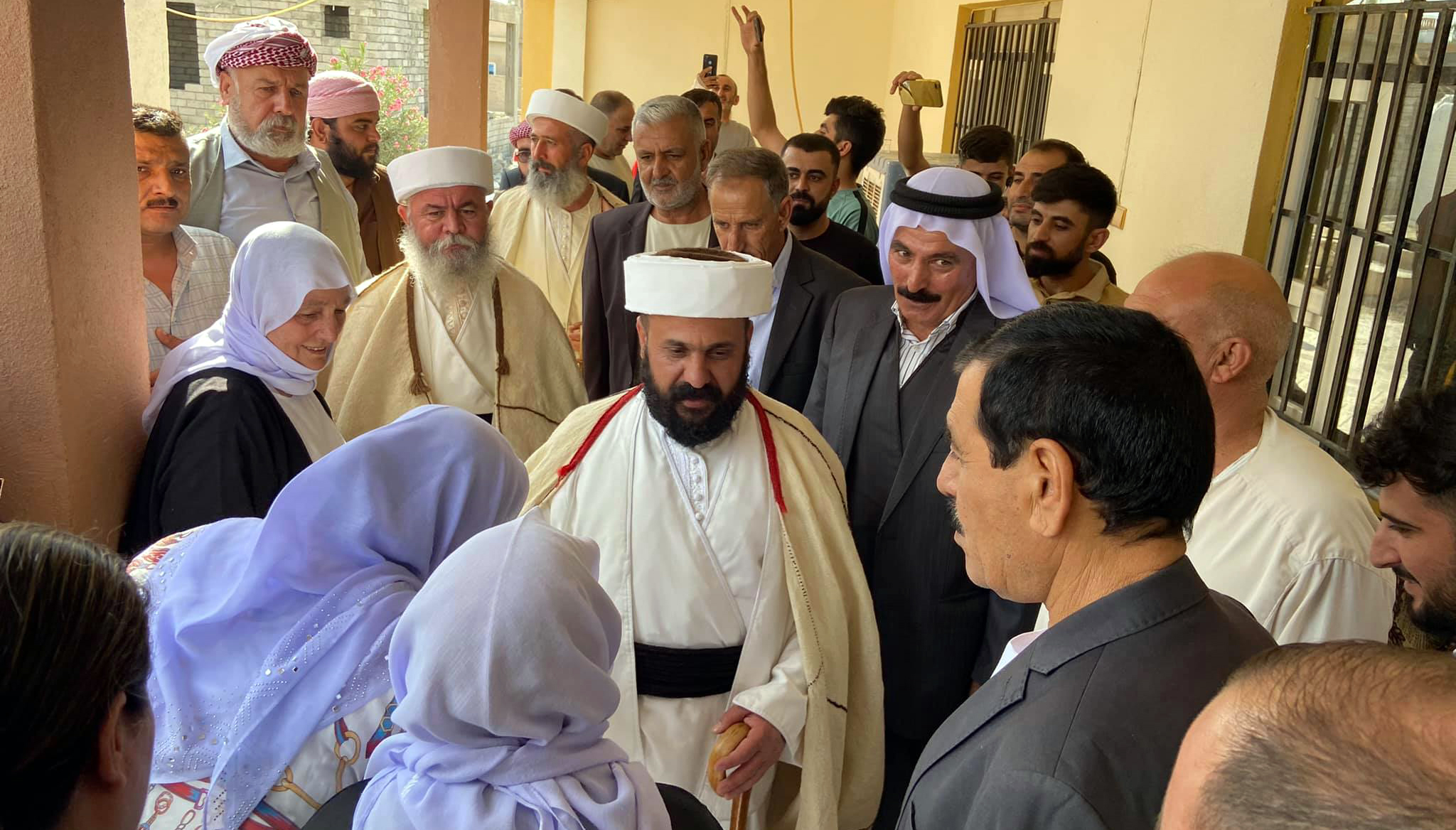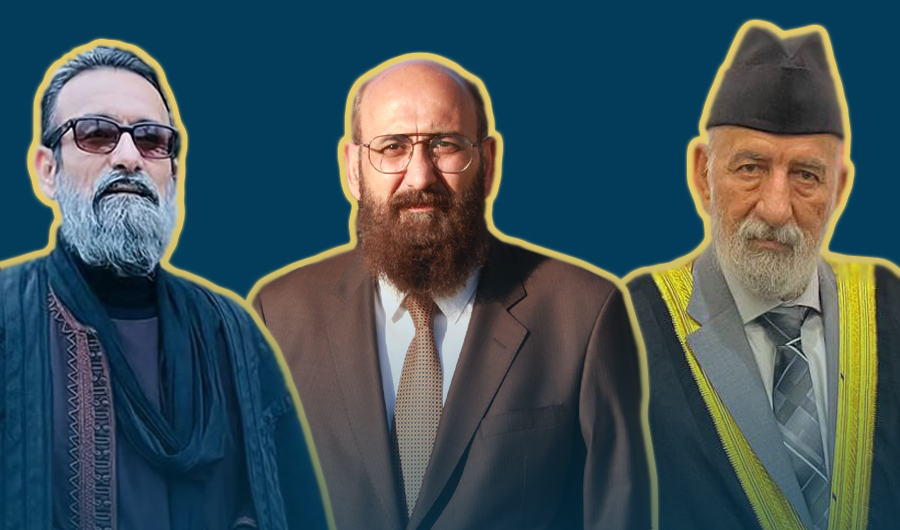The Ezidis of Iraq and the world now have a “third prince,” after the installation of a new prince in Baghdad, thus deepening the disagreements within the Ezidi religious component over the position of prince.
The “new Amir” of the Ezidis announced himself as a prince in a ceremony held on April 15, 2024, in the capital Baghdad. Previously, two other figures were appointed as Emir in Sheikhan and Shingal.
“I obtained the votes and signatures of 50,000 Ezidis from America, Australia, Armenia, Georgia, Germany, Shingal (Sinjar), Shekhan, and other places that expressed their support for my appointment as Emir of the Ezidis,” Salem Najman Dawud Beg told (KirkukNow), after announcing himself (Emir) in Baghdad.
He pointed out that he delivered the signatures to the Iraqi government and obtained the approval of the federal government before becoming an “emir.”
“I have official documents and evidence proving my appointment as an emir,” according to Salem Najman, without showing (KirkukNow) any of the documents and evidence he spoke about.
The announcement of the “new prince” sparked protests and disagreements among the Ezidis, especially on social media, and renewed controversy over the position of the first person in the religious component.
In July 2019, Hazem Tahsin Beg was installed as “prince” of the Ezidis of Iraq and the world in ceremonies held at the Lalish Temple in Sheikhan district. Still, Hazem Beg’s inauguration was rejected by the Ezidis of Shingal. In August 2019, some Ezidi clerics and notables met in the Shabil Qasim shrine in Shingal and decided to appoint Naif Daoud Salman as Emir of Shingal and to form an emirate in the district subject to the authority of the Iraqi central government.

Mir Hazem Beg is the son of the late Ezidi Mir Tahseen Beg. In 1989, he became his father’s agent. He was appointed by the princely family after months of conflict between seven candidates, after the death of the former Ezidi Mir Tahseen Beg in January 2019.
Several years ago, the Ezidi figure, Muawiyah Ismail, declared himself a “prince,” but he did not gain the support of the Ezidis.
Ezidis are an ethno-religious minority with over half a million population, mostly residing in Shingal and Shekhan districts.
In the wake of the attacks on Shingal and other areas of Ninewa province by the extremist militants of the Islamic State of Iraq and Syria ISIS, more than 350,000 Ezidis were displaced, 100,000 of whom migrated at the time outside Iraq. About 200,000 are still living in IDP camps in the Kurdistan Region of Iraq KRI up today.
The extremist militants of IS kidnapped six thousand Yazidis accusing them of being heretics, the fate of nearly half of whom is still unknown, according to KRG statistics.
Jahwar Ali Beg, deputy to Mir Hazem Tahseen Beg, told KirkukNow, “The person who announced himself as Mir from Baghdad is supported by a political party. If he were alone, he would not have been able to pay for the hotel in which he declared himself Mir,” without clear reference to any political party.

The election of the Prince of the Ezidis in Iraq and the world takes place through several stages after selecting a candidate from within the princely family, and in the last stage, the final word is given to the Ezidi Spiritual Council.
The institution for managing the affairs of the Ezidis is the Ezidi Spiritual Council chaired by the Mir of the Ezidis. The institution includes Baba Sheikh, the Sheikh Al-Wazir, and the head of the Qawwalin, and all decisions related to the Ezidi component are issued by that institution.
Ali Beg explained that the princely family consists of 24 families and Hazimm Beg was previously chosen with the votes of 17 families.
“Although Salem Najman Daoud is from the princely family, he needs to win the votes of the majority of families, and the religious ceremonies for his inauguration must take place in the Lalish Temple.”
The position of the prince among the Ezidis is limited to members of the same family. The prince represents the Ezidi component worldwide, and from a religious standpoint, Baba Sheikh is considered a religious authority for them.
The new Prince of the Ezidis denies his affiliation to any party or entity.
"I am also not against any person or entity. My only goal is to serve Shingal, Shekhan, and all the Ezidis of the world."

“Before announcing my inauguration, I sent a message to Hazem Tahseen Beg so that we could discuss some issues, but he did not respond to my message, while a presidential decree for his inauguration has not been issued and has not been approved, but I have an official letter from the relevant authorities of the Iraqi government.”
According to KirkukNow's observations, during the past years, the Iraqi federal government, in particular the Prime Minister's Office and the Presidency of the Republic, received Mir Hazim Beg in the capacity of "Prince of Ezidis", as was referred to in official statements.
“The prince of the Ezidis now is Hazem Beg. He is from the princely family and the eldest son of Tahseen Beg, with the approval of his family and the Spiritual Council,” Ali Beg emphasized.
The Ezidi disputes also included the position of Ezidi Baba Sheikh, which is considered the highest Ezidi religious rank and is considered the spiritual leader of the religious component.
Although Ali Elias officially assumed the position of Ezidi Baba Sheikh in religious ceremonies held at the Lalish Temple in November 2020, many clan heads and Ezidi religious and social figures in Shingal opposed the way Baba Sheikh was inaugurated, for the “partisan interference and ignoring their opinion” in the inauguration decision.
“The installation of several princes leads to the dispersion of the Ezidi house,” according to an Ezidi activist who requested anonymity.
“Which one of these princes addressed Shingal’s administrative problems, or worked to return the displaced or free the kidnapped Ezidis? If the prince cannot do any of these things, what is the benefit to him?”
The disputes over the position of the prince come at a time when thousands of displaced Ezidi families have not returned to their homes, the fate of more than two thousand kidnapped people is still unknown,
Shingal is suffering from destruction and multiple administrations, and these problems continue despite the restoration of the district from the control of ISIS militants.
Both Mir Hazem Tahsin Beg and Baba Sheikh Ali Elias had previously visited Shingal, but their efforts to bring about reconciliation and reunite the Ezidis did not yield anything.
Salem Najman Daoud Beg says that he will return to Shingal as an Ezidi “prince,” and his main headquarters will be in the district and he will work to solve problems, “because I became a prince at the request of the people and I will serve them.”
Most of Iraq's Ezidis are spread in both Sheikhan District (north of Mosul, which belongs to Erbil Governorate administratively) and Shingal District (120 km west of Mosul), which belongs to Nineveh Governorate administratively.
Ezidism is an old Middle Eastern monotheistic ethnic religion and is based on the belief in one God who created the world and entrusted it into the care of seven Holy Beings, known as Angels. The outstanding among these angels is Melek Taus who is the leader and has authority over the world.
Ezidis speak Kurmanji, one of the two main Kurdish dialects. The majority of Ezidis consider Ezidism both a distinct ethnic and cultural identity and do not identify themselves as Kurds.





